Meyer Burger Bundle
How is Meyer Burger Revolutionizing Solar Panel Sales?
Meyer Burger Technology AG, a pioneer in the Meyer Burger SWOT Analysis and solar industry, has dramatically reshaped its approach to the market. The company's evolution from equipment supplier to a manufacturer of high-performance solar cells and modules marks a significant shift in its sales and marketing strategy. This transformation is crucial for driving the adoption of sustainable energy solutions.
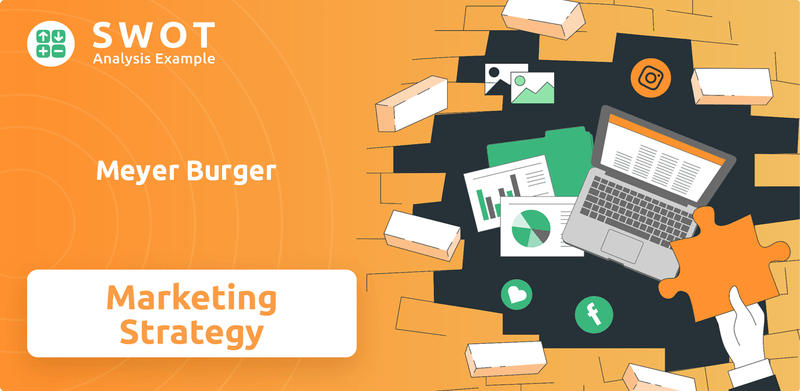
This strategic pivot by the Meyer Burger company, focusing on heterojunction (HJT) and SmartWire Connection Technology (SWCT), has redefined its presence in the photovoltaic industry. The following analysis will dissect Meyer Burger's sales strategy, exploring how it navigates the competitive solar panel market, and examines its marketing strategy to understand its brand positioning and customer acquisition strategy within the renewable energy sector. We will delve into Meyer Burger's marketing campaigns and sales performance to understand its growth.
How Does Meyer Burger Reach Its Customers?
The sales and marketing strategy of the company, focuses on a multi-channel approach to reach its diverse customer base. This strategy encompasses both business-to-business (B2B) and business-to-consumer (B2C) segments, reflecting the company's evolution from an equipment supplier to a vertically integrated solar module manufacturer. The company's sales channels have evolved significantly since around 2020, requiring new infrastructure and partnerships to effectively bring its solar products to market.
For B2B operations, the company relies on direct sales teams to build relationships and manage large-scale orders. They also leverage wholesale distributors to expand into various regional markets, particularly in Europe and the United States. The company has been actively strengthening its sales networks in key markets, as demonstrated by the opening of a sales office in Scottsdale, Arizona, in 2024, supporting its module production facility in Goodyear, Arizona.
In the B2C segment, the company has established an online presence, especially in markets like Germany, allowing end-consumers to learn about and purchase its solar modules. The company has also explored direct-to-consumer (DTC) sales models, particularly for its premium solar modules, to control the customer experience and brand messaging. These strategies are crucial in the competitive solar panel market, as highlighted in an analysis of the Competitors Landscape of Meyer Burger.
Direct sales teams are essential for managing large-scale orders and building relationships. Wholesale distributors extend the company's reach into regional markets, especially in Europe and the United States. In 2024, a new distribution partnership was established with BayWa r.e. in Europe.
An online presence allows end-consumers to learn about and purchase solar modules. Direct-to-consumer (DTC) sales models are explored, especially for premium modules. These channels provide greater control over the customer experience and brand messaging.
The company is focused on strengthening sales networks in key markets like the US. A sales office was opened in Scottsdale, Arizona, in 2024, supporting the module production facility in Goodyear, Arizona. This expansion is part of the company's broader strategy to increase its market share in the photovoltaic industry.
Strategic partnerships are crucial for expanding market reach. The partnership with BayWa r.e. in Europe is a key example of this strategy. These collaborations are essential for navigating the complexities of the renewable energy sector and reaching a wider customer base.
The evolution of sales channels reflects a strategic shift to bring its solar products to market effectively. This includes direct sales, wholesale distribution, and online sales. The company's marketing campaigns focus on brand awareness and customer acquisition.
- Direct Sales Teams: Focus on building relationships and managing large orders.
- Wholesale Distributors: Expand reach in regional markets, especially in Europe and the US.
- Online Presence: Allows end-consumers to learn about and purchase solar modules.
- Direct-to-Consumer (DTC) Sales: Control customer experience and brand messaging.
Meyer Burger SWOT Analysis
- Complete SWOT Breakdown
- Fully Customizable
- Editable in Excel & Word
- Professional Formatting
- Investor-Ready Format
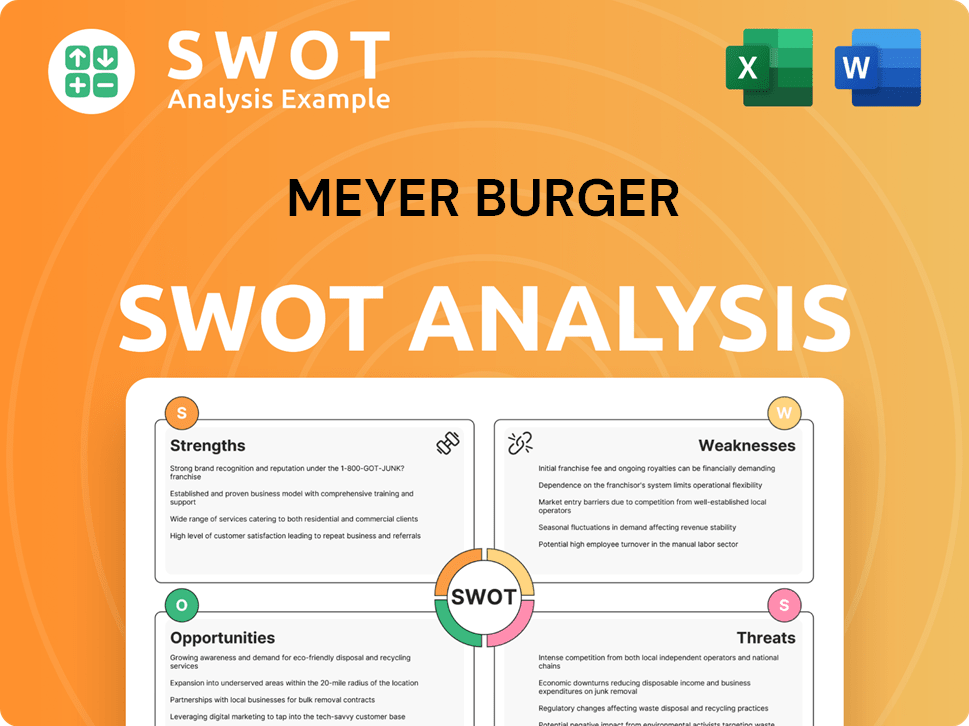
What Marketing Tactics Does Meyer Burger Use?
The marketing tactics employed by the company are designed to boost brand recognition, generate leads, and ultimately drive sales of its high-performance solar products. This approach involves a blend of digital and traditional marketing strategies, all geared towards reaching both business-to-business (B2B) and business-to-consumer (B2C) segments within the solar panel market.
Digital marketing plays a crucial role, with a strong emphasis on content creation, search engine optimization (SEO), and targeted advertising. The company also leverages social media platforms and email marketing to engage with its audience, share updates, and nurture leads. Furthermore, the company actively participates in industry events and trade shows to showcase its products and network with potential partners.
Data-driven marketing is increasingly important for the company, with a focus on analyzing website traffic, lead generation, and sales conversion rates to optimize marketing spend. The company's marketing mix has evolved significantly with its pivot to module manufacturing, requiring a stronger focus on direct customer engagement and brand storytelling to differentiate its premium products in a competitive market.
The company uses a variety of digital marketing strategies. Content marketing includes technical specifications, white papers, and case studies. SEO is used to improve online visibility. Paid advertising targets specific segments.
Content marketing is a key component of the company's digital strategy. It involves publishing detailed technical specifications, white papers, and case studies. These resources highlight the efficiency and durability of its heterojunction and SmartWire Connection Technology modules.
Search engine optimization (SEO) is crucial for ensuring visibility in online searches for solar solutions. Paid advertising on platforms like Google and LinkedIn targets specific B2B and B2C segments. Tailored messaging is used to reach these segments effectively.
Email marketing is used for lead nurturing and communicating product updates and company news. Social media platforms, including LinkedIn, Twitter, and Facebook, are utilized for brand building and community engagement.
The company participates in key industry events and trade shows, such as Intersolar Europe. This participation allows them to showcase their products and network. Public relations activities secure media coverage in renewable energy publications.
Data-driven marketing is increasingly important, with the company analyzing website traffic, lead generation, and sales conversion rates. This analysis helps optimize marketing spend. The goal is to improve the effectiveness of marketing efforts.
The company's marketing strategy focuses on building brand awareness and driving sales in the competitive photovoltaic industry. This involves a multi-faceted approach that includes digital marketing, traditional media, and data analysis to optimize performance. The company's sales and marketing strategy is designed to reach both B2B and B2C customers.
- Content Marketing: Publishing technical specifications, white papers, and case studies to highlight product benefits.
- SEO: Optimizing online content to improve search engine rankings and visibility.
- Paid Advertising: Utilizing platforms like Google and LinkedIn to target specific customer segments.
- Email Marketing: Nurturing leads and communicating product updates.
- Social Media: Building brand awareness and engaging with the community on platforms like LinkedIn, Twitter, and Facebook.
- Industry Events: Participating in trade shows like Intersolar Europe to showcase products and network.
- Public Relations: Securing media coverage in renewable energy publications.
- Data Analysis: Analyzing website traffic, lead generation, and sales conversion rates to optimize marketing spend.
Meyer Burger PESTLE Analysis
- Covers All 6 PESTLE Categories
- No Research Needed – Save Hours of Work
- Built by Experts, Trusted by Consultants
- Instant Download, Ready to Use
- 100% Editable, Fully Customizable
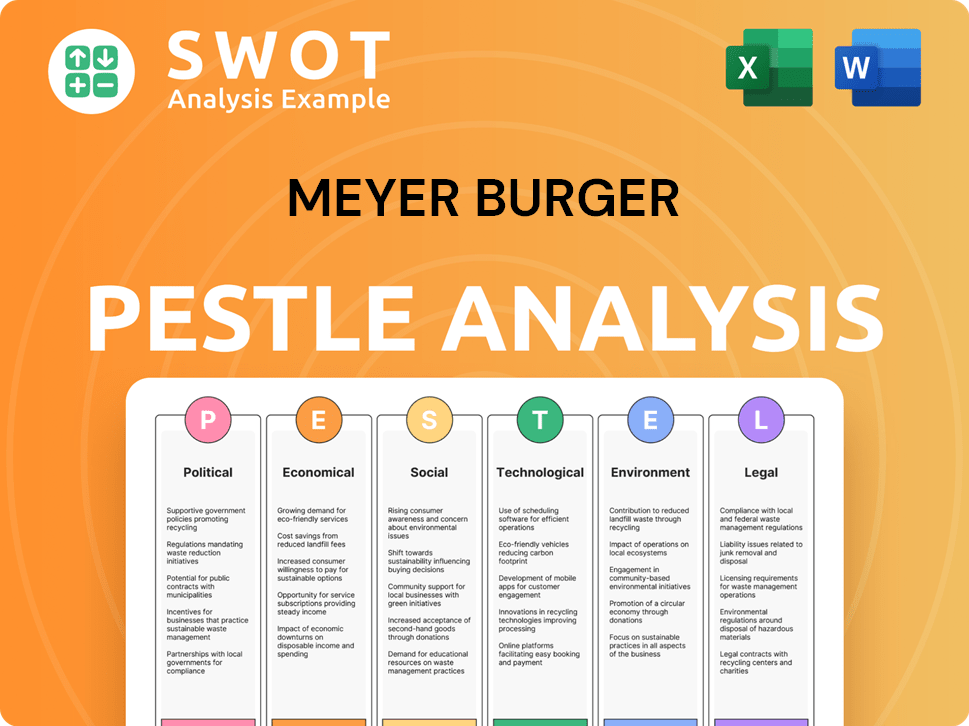
How Is Meyer Burger Positioned in the Market?
The brand positioning of Meyer Burger centers on its identity as a premium provider within the solar panel market, emphasizing innovation, efficiency, and sustainability. This strategy is crucial in the photovoltaic industry, where differentiation is key. The company distinguishes itself through its 'Swiss quality' and 'European manufacturing' approach, setting it apart from competitors. This focus on quality and origin is a core element of its marketing strategy.
Meyer Burger's visual identity and communication tone reflect its commitment to advanced technology and environmental responsibility. The company's marketing strategy targets customers who prioritize long-term performance and sustainable practices. This approach is particularly relevant in the renewable energy sector, where consumer preferences increasingly favor ethically sourced and environmentally friendly products. This aligns with the growing demand for sustainable energy solutions.
The company's unique selling propositions (USPs), such as superior efficiency and enhanced durability, are central to its competitive advantage. By highlighting these features, Meyer Burger aims to attract discerning homeowners and large-scale project developers. This strategy is designed to increase brand awareness and drive sales performance in the solar panel market.
The core brand message emphasizes 'Swiss quality' and 'European manufacturing.' This positioning differentiates the company from many competitors. This approach resonates with customers who value high-quality, ethically produced products.
The visual identity uses clean lines and a modern aesthetic to reflect advanced technology. The tone of voice is authoritative, knowledgeable, and forward-looking. This appeals to customers who prioritize long-term performance and environmental responsibility.
Meyer Burger highlights the superior efficiency of its heterojunction (HJT) technology. It also emphasizes the enhanced durability of its SmartWire Connection Technology (SWCT). These features provide better returns on investment for customers.
The target audience includes discerning homeowners and large-scale project developers. The company's marketing strategy focuses on reaching customers who prioritize quality and sustainability. This approach is key to its sales and marketing efforts.
The company's brand consistency across various channels, from its website to industry events, ensures a cohesive brand experience. This integrated approach helps build brand awareness and supports its sales process. For more insights, consider reading about the Revenue Streams & Business Model of Meyer Burger.
Meyer Burger Business Model Canvas
- Complete 9-Block Business Model Canvas
- Effortlessly Communicate Your Business Strategy
- Investor-Ready BMC Format
- 100% Editable and Customizable
- Clear and Structured Layout
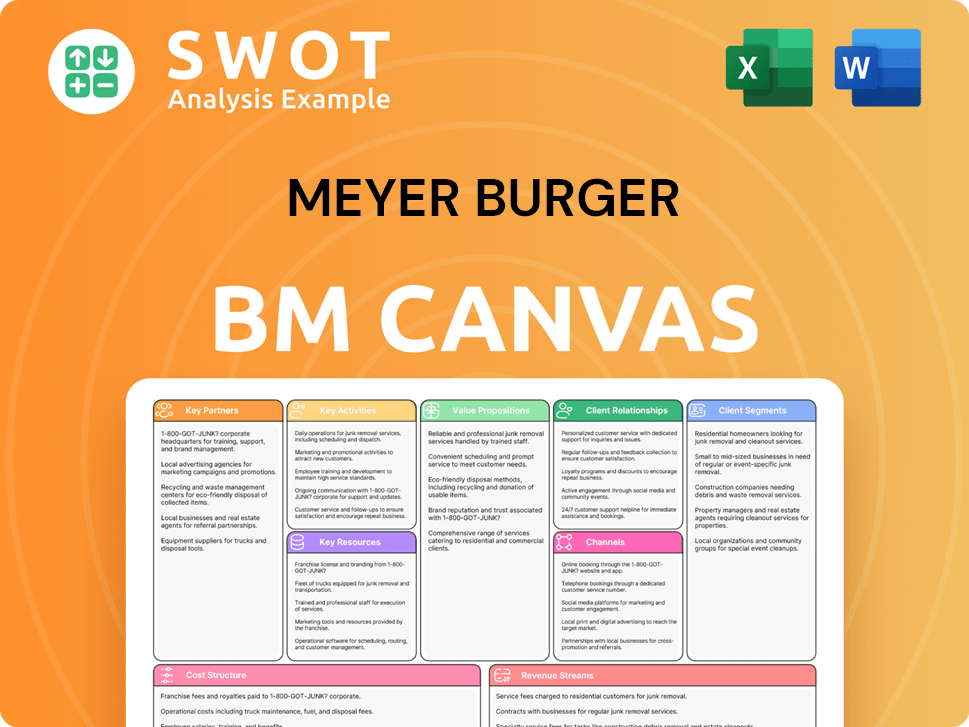
What Are Meyer Burger’s Most Notable Campaigns?
The core of the Meyer Burger sales strategy and marketing strategy revolves around its transformation into a manufacturer of high-performance solar modules. This strategic shift, initiated around 2020, signifies a significant internal campaign designed to leverage proprietary technology and capture more value within the solar panel market. The company's approach involves substantial investments in production facilities and targeted communication efforts to re-position itself in the photovoltaic industry.
A key element of the
These initiatives are part of a broader effort to build brand recognition and increase market share in the renewable energy sector. The success of these campaigns will be measured by the growth in market share and the strength of its brand in the US and other key markets. In early 2024, Meyer Burger aimed to secure up to CHF 250 million through a capital raise, demonstrating investor confidence in its new direction.
The primary objective was to leverage proprietary technology (HJT and SWCT) to capture more value in the solar supply chain. This strategic pivot involved significant investment in new production facilities, such as the module factory in Freiberg, Germany, and the cell factory in Bitterfeld-Wolfen. The primary channels for communicating this transformation were investor relations, industry press releases, and direct engagement with potential B2B partners and customers.
With the announcement of a module production facility in Goodyear, Arizona, Meyer Burger has actively campaigned to attract US customers and partners. This involves direct sales efforts, participation in US solar industry events, and leveraging the 'Made in USA' appeal. The objective is to establish a strong foothold in the North American market.
The
- Direct Sales: Building relationships with potential customers and partners.
- Industry Events: Participating in solar industry events to increase brand visibility.
- Made in USA Appeal: Capitalizing on the 'Made in USA' label to attract US customers.
- Investor Relations: Communicating the company's strategic shift and financial performance to investors.
Meyer Burger Porter's Five Forces Analysis
- Covers All 5 Competitive Forces in Detail
- Structured for Consultants, Students, and Founders
- 100% Editable in Microsoft Word & Excel
- Instant Digital Download – Use Immediately
- Compatible with Mac & PC – Fully Unlocked
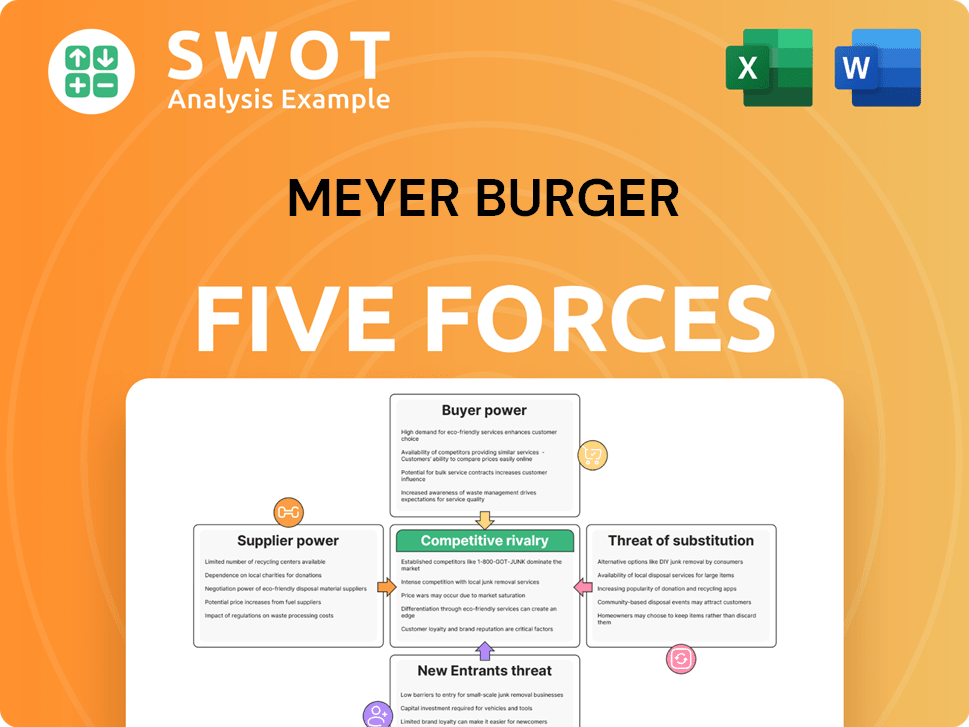
Related Blogs
- What are Mission Vision & Core Values of Meyer Burger Company?
- What is Competitive Landscape of Meyer Burger Company?
- What is Growth Strategy and Future Prospects of Meyer Burger Company?
- How Does Meyer Burger Company Work?
- What is Brief History of Meyer Burger Company?
- Who Owns Meyer Burger Company?
- What is Customer Demographics and Target Market of Meyer Burger Company?
Disclaimer
All information, articles, and product details provided on this website are for general informational and educational purposes only. We do not claim any ownership over, nor do we intend to infringe upon, any trademarks, copyrights, logos, brand names, or other intellectual property mentioned or depicted on this site. Such intellectual property remains the property of its respective owners, and any references here are made solely for identification or informational purposes, without implying any affiliation, endorsement, or partnership.
We make no representations or warranties, express or implied, regarding the accuracy, completeness, or suitability of any content or products presented. Nothing on this website should be construed as legal, tax, investment, financial, medical, or other professional advice. In addition, no part of this site—including articles or product references—constitutes a solicitation, recommendation, endorsement, advertisement, or offer to buy or sell any securities, franchises, or other financial instruments, particularly in jurisdictions where such activity would be unlawful.
All content is of a general nature and may not address the specific circumstances of any individual or entity. It is not a substitute for professional advice or services. Any actions you take based on the information provided here are strictly at your own risk. You accept full responsibility for any decisions or outcomes arising from your use of this website and agree to release us from any liability in connection with your use of, or reliance upon, the content or products found herein.